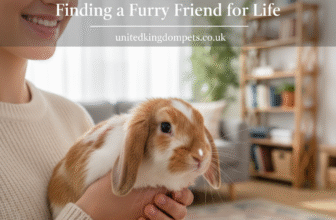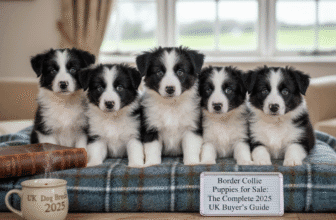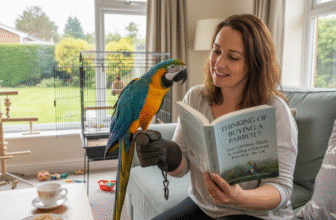
A Complete Guide to Finding Guinea Pigs for Sale in the UK: Your Journey to Cavy Companionship
There are few sounds as heart-warming as the excited ‘wheek wheek!’ of a guinea pig eagerly awaiting their morning veggies. These charming, characterful little creatures, also known as cavies, make wonderful companions. Their gentle nature, comical ‘popcorning’ when happy, and soothing purrs can bring immense joy to a home. However, bringing guinea pigs into your life is a significant commitment, and the journey begins long before you hand over any money. The phrase “guinea pigs for sale” opens up a world of possibilities, but it’s crucial to navigate it with care, knowledge, and a focus on animal welfare.
This comprehensive guide is designed for prospective owners in the United Kingdom. We’ll walk you through everything from deciding if guinea pigs are right for you, to the different avenues for finding them, what to look for in a healthy cavy, and how to set up the perfect home for your new friends. Let’s embark on this exciting journey together, ensuring the path you choose leads to a happy, healthy life for your future pets.
Is a Guinea Pig the Right Pet for You? A Reality Check
Before you even type “guinea pigs for sale near me” into a search engine, it’s vital to take a step back and honestly assess if you can provide what they need. They are not low-maintenance ‘starter pets’ but sensitive animals with specific requirements.

More Than Just a Cage Pet: Understanding Their Needs
Guinea pigs thrive on routine, space, and companionship. Understanding their core needs is the first step to being a responsible owner.
- They Are Social Creatures: A lonely guinea pig is an unhappy guinea pig. They are herd animals and need the company of their own kind to feel secure and content. In the UK, it is strongly recommended, and some welfare organisations will insist, that they are kept in pairs or small groups. Keeping a single guinea pig is widely considered detrimental to its well-being.
- They Need Space: The traditional small pet shop hutch is simply not big enough. The RSPCA recommends a minimum cage size of 120cm x 60cm for two guinea pigs, but bigger is always better. In addition to their indoor cage or hutch, they need daily access to a larger, secure run where they can stretch their legs, graze, and explore.
- A Specific Diet is Non-Negotiable: A guinea pig’s diet should consist of about 80% high-quality feeding hay (like Timothy or Meadow hay). This is crucial for their dental and digestive health. They also need a small daily portion of guinea pig-specific pellets and a cup of fresh, varied vegetables. Crucially, like humans, guinea pigs cannot produce their own Vitamin C, so they must get it from their daily veggie intake (e.g., bell peppers, kale, parsley) and fortified pellets.
- A Long-Term Commitment: Guinea pigs typically live for 5 to 7 years, with some reaching 8 or 9. This is a longer commitment than many other small pets like hamsters or gerbils. You need to be prepared for their care for their entire lifespan.
- Regular Health Checks: You’ll need to perform weekly health checks at home, including weighing them, checking their teeth, nails, and coat. They are also prone to certain health issues, so vigilance is key.
The Real Cost of Guinea Pig Ownership
The initial purchase price of a guinea pig is a tiny fraction of its lifetime cost. It’s essential to budget accordingly.
- Initial Setup Costs: Expect to spend £200 – £400+ on a high-quality setup. This includes a large indoor cage (like a C&C cage) or a spacious hutch and run, a secure pet carrier, water bottles, ceramic food bowls, hay racks, multiple hideouts, and initial supplies of hay, pellets, and bedding.
- Ongoing Monthly Costs: The monthly bill for two guinea pigs can be around £40 – £60. This covers high-quality hay (they eat a lot!), pellets, fresh vegetables, and bedding (options like fleece liners, which are cost-effective long-term, or disposable bedding like Megazorb or Aubiose).
- Veterinary Care: This is the big variable. Guinea pigs are classed as ‘exotic’ pets, so you’ll need to find a cavy-savvy vet. A routine check-up might be £40-£60, but emergency treatment for common issues like dental problems, bloat, or respiratory infections can run into hundreds of pounds. Pet insurance is highly recommended and typically costs £10-£20 per month for a pair.
Where to Find Guinea Pigs for Sale in the UK: Your Options Explored
Once you’ve decided you’re ready, the next step is finding your new companions. In the UK, you generally have three main options, each with its own ethical considerations.
The Ethical Choice: Adopting from a Rescue Centre
Without a doubt, adopting from a rescue is the most recommended and rewarding route. Thousands of guinea pigs end up in rescue centres across the UK every year, through no fault of their own. By adopting, you are giving a deserving animal a second chance at a loving home.
- Why Adopt? You are directly helping to ease the burden on overflowing animal shelters and making space for another animal in need. You are also taking a stand against the commercial breeding industry.
- Where to Look: Start with the major national charities like the RSPCA, Blue Cross, and Woodgreen Pets Charity. However, don’t overlook the incredible network of smaller, independent, and often breed-specific guinea pig rescues. A quick search for “guinea pig rescue near me” will reveal local gems run by passionate volunteers.
- The Adoption Process: Reputable rescues will have a thorough process. This may include an application form, a chat about your experience and home setup, and sometimes a home check (or a request for photos/videos of your setup). They will charge an adoption fee, usually around £20-£50 per guinea pig. This fee rarely covers the cost of their care but helps the charity continue its work and ensures adopters are serious.
- The Benefits: Rescue guinea pigs often come with a known history and personality, making it easier to find a pair that’s a good fit for your family. They will have had a full health check, and males will often already be neutered, which is a huge cost saving. The rescue will also have correctly sexed them, avoiding any surprise litters! Most importantly, they provide lifetime backup and support.
Choosing a Reputable Breeder
If you have your heart set on a specific breed, a reputable breeder is your next best option. A good breeder prioritises the health, welfare, and temperament of their animals above all else. They are hobbyists who are passionate about their specific breed.
- What Defines a Good Breeder? They will be happy to show you where the guinea pigs are kept, and the environment will be clean, spacious, and well-maintained. They will let you meet the parents (or at least the mother) of the babies. They will handle their animals regularly, so they are well-socialised. They will be knowledgeable and ask you plenty of questions to ensure you’re a suitable owner. Look for breeders associated with organisations like the British Cavy Council (BCC).
- Questions to Ask: When were they born? Have they been separated from their mother? What have they been fed? Have they been treated for mites? Can you guarantee their sex? A good breeder will answer all these with confidence.
- Red Flags to Watch For: Avoid any breeder who won’t let you see the living conditions, who has a huge number of litters available at once, who tries to sell babies that are less than 6 weeks old, or who keeps their animals in dirty, cramped cages. These are signs of a ‘backyard breeder’ or a commercial farm where profit is the only motive.
Pet Shops: A Word of Caution
This is often the most convenient but most ethically fraught option. While some large chain stores have made improvements, such as creating in-store adoption centres (like Pets at Home’s partnership with Support Adoption For Pets), buying directly from a pet shop’s ‘for sale’ stock can be problematic.
- The Risks: The biggest issue is the source. Many pet shops buy their stock from large-scale commercial breeders (often called ‘rodent farms’ or ‘mills’) where conditions can be poor and welfare is not the top priority. This can lead to animals with underlying health or genetic issues. Mis-sexing is also a common and serious problem, often leading to unexpected and unwanted litters. The staff may also lack specialist knowledge about guinea pig care.
- If You Must Use a Pet Shop: If this is your only option, be extremely cautious. Assess the conditions in the store. Are the cages clean and spacious? Do the animals have hay, fresh water, and places to hide? Do they look healthy and alert? Ask the staff where they source their animals from. Be prepared to take your new pets to a vet for a check-up immediately.
Bringing Your New Friends Home: The Essential Checklist
You’ve found the perfect pair! Now it’s time to prepare for their arrival. The transition should be as smooth and stress-free as possible.
Choosing Your Guinea Pigs: Signs of a Healthy Cavy
Whether you’re at a rescue or a breeder, perform a quick health check before finalising your choice.
- Body: The guinea pig should feel well-covered but not fat, with no lumps or bumps.
- Eyes & Nose: Should be bright, clear, and free from any discharge.
- Coat: The fur should be clean and full, with no bald patches, sores, or signs of parasites (check for little black specks of mite dirt at the base of the hair). Note that a small bald patch behind each ear is normal.
- Rear End: The area should be clean and dry, with no signs of diarrhoea or staining.
- Behaviour: A healthy guinea pig should be alert, inquisitive, and active. While they may be nervous of being picked up, they shouldn’t be overly lethargic.
Setting Up Their Five-Star Accommodation
Have their home completely set up before you bring them home. This is their safe space.
- Location: Choose a room that is free from draughts, direct sunlight, and loud noises. They should be kept away from radiators and the constant hum of appliances.
- Housing: As mentioned, a 120cm x 60cm base is the minimum. C&C (Cubes and Coroplast) cages are a fantastic, customisable indoor option. If using a hutch, ensure it is weatherproof and predator-proof.
- Bedding: Choose a substrate that is absorbent and safe. Popular choices include paper-based bedding (like Carefresh), dust-extracted shavings like Aubiose or Megazorb, or washable fleece liners over an absorbent layer (like towels or puppy pads). Avoid pine or cedar shavings as the phenols can cause respiratory issues.
- Accessories: You will need two of everything to avoid squabbles!
- Two hideouts or houses.
- One large hay rack or pile of hay.
- One non-tip ceramic food bowl.
- One or two non-leaking water bottles.
- Tunnels and chew-safe toys for enrichment.
The First 48 Hours: Helping Them Settle In
The first couple of days are crucial for building trust.
- The Journey Home: Transport them in a secure, well-ventilated carrier with some hay and a piece of familiar-smelling bedding if possible.
- Quiet Time: Once home, place them gently into their prepared cage and leave them alone for several hours to explore their new surroundings. Ensure they have plenty of hay and fresh water.
- Gentle Introductions: For the first day or two, simply sit by their cage and talk to them in a calm, soothing voice so they get used to your presence and scent. You can offer a piece of vegetable by hand.
- Handling: Wait until they seem more confident before attempting to pick them up. Make handling sessions short and positive, rewarding them with a tasty treat afterwards.
Conclusion: Your Journey into Guinea Pig Parenthood
Finding “guinea pigs for sale” is the start of a wonderful adventure. By choosing to adopt or by carefully selecting a reputable breeder, you are setting the foundation for a positive relationship with your pets. Remember that these small animals have big personalities and complex needs. The research, preparation, and financial investment you make from the very beginning will be repaid a thousand times over in happy wheeks, contented purrs, and the delightful sight of your cavies popcorning with sheer joy in the home you’ve lovingly provided. Welcome to the wonderful world of guinea pigs; you’re in for a treat.







